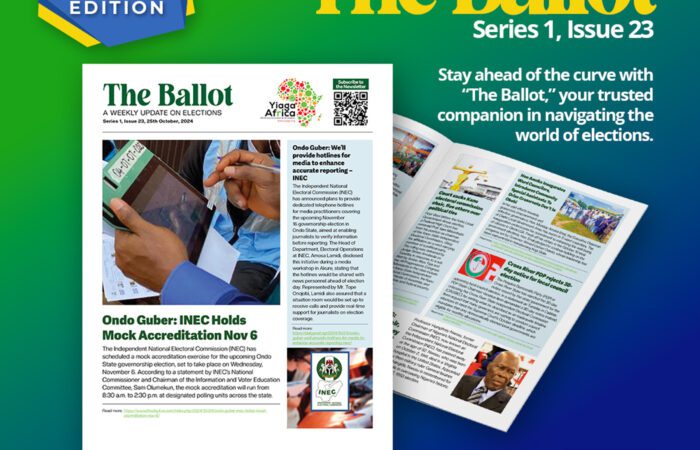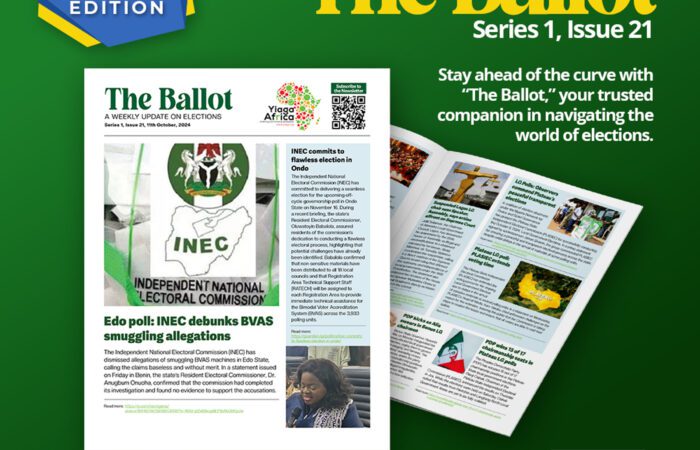Barely four months to the Governorship elections in Bayelsa and Kogi state and with the controversy of over the usage of server hovering over the Independent National Electoral Commission (INEC), the commission may just remain in a fix on possibility of using a server for the upcoming Governorship elections. Although the court has taken a decision on permission to request to access the server that has been initially declared non-existent, stakeholders have interpreted the judgement in different ways. This is despite, election observation group like YIAGA AFRICA revealed that its observers saw INEC officials “attempting” to transmit elections result to a server and reports from media says officials of the commission confessed to have transmitted results to a server. While some believe the court decision further reaffirms non-existent of server, others think the court only decided it’s too early to access the server at the preliminary stage of the litigation.
It is no brainer that the commission transmitted results to a server using the smart card reader during off-circle Governorship elections in Ekiti and Osun 2018. The only logical explanation for this is the expectation that the new electoral law will be signed into law and thus electronic transmission can be implemented in full force during the 2019 elections. This is apparently why transmission of results using smart card reader was also in the electoral guideline for the 2019 elections. Then conundrum here however is that the lack of assent to the electoral law means, information on the server remain unharnessed as it has not been used to publicly authenticate manual data of either accreditation or results.
This article is not in any way taking readers back to the 2019 Presidential election tribunal on the server controversy as Chairman of the commission, Prof. Mahmood Yakubu, has said he will address the server controversy that trailed the 2019 general elections, after the Presidential Elections Tribunal. All the same, there is need to forecast the plans of the commission with the use of server in the upcoming off-circle governorship elections.
Argument abound on the idea of electronic voting or at least electronic transmission of election results is to provide a transparent evidence vis-à-vis results pasted at polling units and collation centers. Political analysts have said electronic voting and result transmission to server is the solution to the consistent electoral hitches. Although, this is subject to assent to the new electoral act, analysts believe that the upcoming Kogi and Bayelsa election is another opportunity for the commission to sincerely test run its server ahead of subsequent elections pending when the electoral law is signed.
On the other hand, for the fact that neither electronic voting nor electronic transmission has been backed by law, others may wonder the essence of financing and deploying a server for the Bayelsa and Kogi elections. Similarly, considering the fact that data therein are for not necessarily for public consumption and cannot be used to authenticate results from manual collation, will the commission still go on and still deploy servers for result and data transmission for the upcoming Governorship elections?
Without assent to the new electoral act, one begins to wonder what impact electronic transmission has served during previous off-circle elections where INEC publicly admitted it test-run its server in a micro scale. Despite this, it is not out of place for the electoral commission to pilot its server in off-circle elections just as it has done in Ekiti and Osun but when for how long will it keep deploying a server that may not have impact on the elections it was deployed.
In a bid to overcome this electoral conundrum, it is pertinent for the commission, civil society organistions and political parties to push for assent to the new electoral act which will solve a lot of electoral issues in Nigeria. It is believed that electronic voting will eradicate rigging, multiple registrations and voting while cases of political violence and hijacking of ballot boxes will be easily checkmated. Adopting this process for Nigeria’s democracy will not only increase transparency but will also boost citizen confidence in the process while further improving participation in the process.
Moshood Isah is an Election enthusiast and Communication Expert
Isah is the Media Officer of YIAGA AFRICA
He tweets @Moshoodpm






